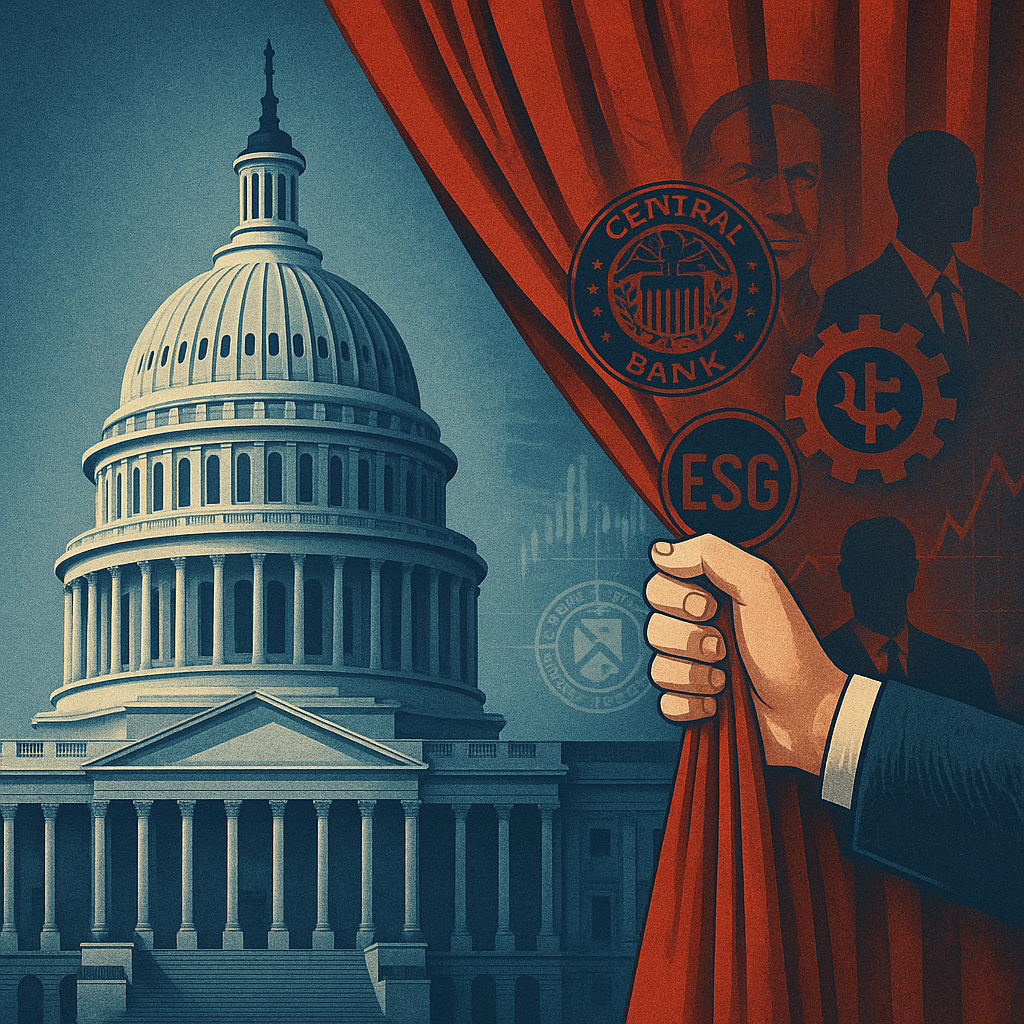I wrote this on Facebook, apparently two years ago, and a Facebook friend who shared it reposted it from their Facebook memories. I thought it would be fitting to repost it here.
I was just asked why I am a Republican rather than a Democrat. My first answer was to say that I am a libertarian (small l), and I side primarily with Republicans, as they tend to focus on economic factors, rather than social issues. I believe economic factors are more important than social issues.
I was told that I could be a Blue Dog Democrat. That’s true. Blue Dog Democrats are libertarians in the Democrat party. And yet I still align with Republicans.
I thought for a bit about the deepest fundamental differences in outlook between the parties, and then said the following:
A nation can have either equality (in the broadest sense of the word), or opportunity, but not both, for where opportunity exists, different people will have different measures of success, and will become unequal. Only by destroying opportunity can equality be provided, in the broadest sense of the word.
 Without opportunity, there is no need to achieve, nor to produce. Without achievement, there is no greatness. Without production, there is no food.
Without opportunity, there is no need to achieve, nor to produce. Without achievement, there is no greatness. Without production, there is no food.
Modern liberalism goes back to the first true economist, Thomas Malthus, who noted at the end of the 18th Century that throughout human history, populations always grew faster than food supplies, and as a result, 90% of the human population always lived one bad harvest from death.
Ironically, at the time Thomas Malthus wrote that, England and the United States had food supplies that were growing at several times the pace of their respective populations. Thomas Malthus was right that historically 90% of the human population was one bad harvest from death, but more modern times were proving that this need not be the case.
Thomas Malthus was quickly followed by other economists, such as Adam Smith, who saw Malthus’ work as historically correct, but who also saw that Malthus’ observations were no longer holding true in England and the United States. These economists began to study, to determine what had changed, that suddenly allowed abundance to grow faster than populations. They realized that the change was the introduction of free market economies. Free markets began to become the norm in Western Societies.
This is why, in Western Societies, we historically have focused, not on equality in the broadest sense of the word, but on equal treatment under the law, and by extension, on the removal of artificial barriers to advancement.
Other economists also followed Thomas Malthus, such as Karl Marx. Marx reasoned that if 90% of the world population was starving, while the other 10% were wealthy, the obvious solution was to share the food. Socialism was Marx’ answer. Rather than treating everyone equally under the law, and removing artificial barriers to advancement, Marx wanted to institutionalize artificial barriers to advancement, and to treat everyone differently under the law, in order to force equal outcomes.
Because socialism still needs a government to administer sharing, rather than getting a utopia of happy ant-people (as Marx envisioned), socialism always follows the George Orwell book, Animal Farm, and unless you believe that Hillary Clinton would have given Chelsea Clinton the same economic opportunities a poor kid in Detroit gets, on some level you know this to be true. Socialism is, at its heart, the belief that if the feudal lords are replaced with new feudal lords, all will prosper.
Socialism is serfdom.
I like the notion of equality, but I also like seeing people achieve greatness, and I like abundance. As such, I like the notion of making everyone equally free, and letting them do as they will, without interference. This is what creates abundance.
Too often people spin things on their head, judging the equality of treatment under the law, based on the different economic outcomes different groups achieve. Where we see similar groups measured against each other, such as looking at the economic outcomes of different people, who have similar educations and similar upbringings, and who live in similar neighborhoods, we do see a large degree of equality in outcomes. Some individuals do better than others (some a LOT better), but in the aggregate, we see a large degree of equality between different ethnicities and genders.
For Democrats, it is considered ‘politically incorrect’ to say that differences in economic outcomes are not caused by differences in ethnicity or gender, but by things like differences in education, upbringing, and neighborhoods. Democrats call this statement ‘racist’ and ‘chauvinistic,’ in spite of all of the evidence telling us it is true.
Democrats are still stuck on the notion that we have to do a better job sharing food. Somehow, the fact that it is possible to make more food is lost on them. Democrats cannot accept that serfdom was caused by a lack of personal freedom, and not a lack of anything else.
If you tell a child all of the ways that he or she can succeed the entire time they are growing up, they will tend to succeed. If you continuously tell the same child instead all of the reasons they are doomed to failure, they will tend towards failure. It is the belief in what is or is not possible, that best predicts what is achieved.
That is why I am a Republican.





court
It’s interesting how you see equality and opportunity as mutually exclusive, “A nation can have either equality (in the broadest sense of the word), or opportunity, but not both…” I’m guessing ‘equality’ for you means legislation should be passed so that child born in the bottom 10% has the same resources available as a child born in the top 1% of income? Of course, that’s absurd! For me, equality and opportunity are the same thing. For me, ‘equality’ means a child born in the bottom 10% has access to secure shelter, food, healthcare and affordable education to have the skills to create opportunities for him or herself. How that level of equality is carried out can be debated, whether by private or public industries. I prefer a mixed economy as that seems to historically work best. Equality means helping a person to the starting line for an opportunity at success, not equality of outcome. It doesn’t mean the bottom 10% child attends the most expensive prep schools or universities, but it does mean, a foundational baseline is guaranteed for all children. It is only through shortsightedness, greed, selfishness and/or lack of understanding that our society chooses not solve its most pressing problems.
Thank you for your insightful website.